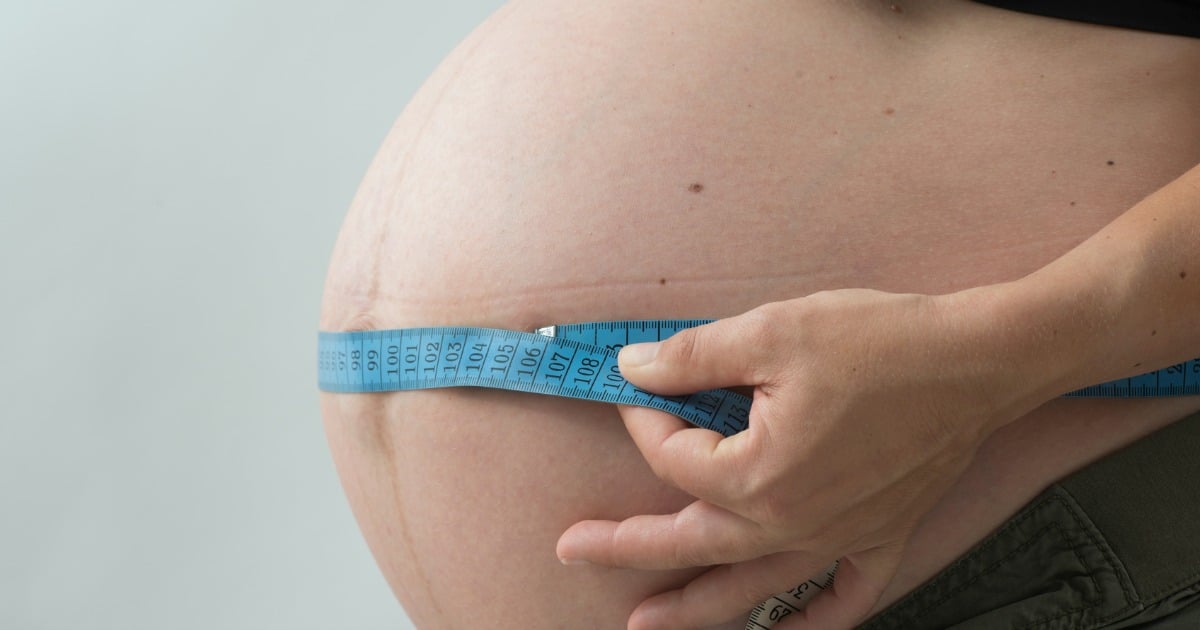Every single day, women are surrounded by advertising specifically designed to make them feel bad about themselves.
That is not an opinion. That is a fact.
An overwhelming number of marketing campaigns are focused on a fairly simple two-pronged strategy, consisting of a) convincing women that they are not good enough, and b) suggesting that purchasing a certain product will fix this problem.
Of course, the lasting impact of this approach is that women are left with an entirely unrealistic idea of what they should look like and who they should be, and no way to actually achieve this.
For 33-year-old Josephine Martin, a recent visit to a shopping centre was the last straw.
“I wanted to draw your attention to an issue in our community that is not getting better,” she wrote in an email to Mamamia.
“Stores profiting from exploiting mothers’ body shame.”
While shopping, Josephine was stunned by an advertisement outside a maternity clothing shop, Mamaway. It spruiked a ‘Bring Sexy Back’ challenge, encouraging women to “get rid of your mummy tummy!”
"Win your $100 gift card!" the sign read.
As Josephine explained, the challenge requires customers to buy a particular product and show off its results by taking a picture of their tummy two weeks after labour, and another two pictures of their tummy a few weeks later. The images should show "significant improvement" - if you want to win a gift card, that is.
Josephine describes the challenge as "pretty gross," and argues "firstly, post-natal swelling goes down naturally, so any improvement is unlikely to be the result of their product.
"Secondly, the store is garnering publicity shots for itself by pressuring women to lose weight and thus 'significantly [improve]' their bodies."
As a mum to an 18-month-old girl and a teacher at a local school, Josephine no longer wanted to internalise her frustration with such an obviously problematic advertisement. So she did something about it. She contacted the company.
"In a prominent position in front of your store, a large poster features a mid shot of a woman's torso, wrapped in some kind of bandages," she wrote to the store.
"The caption instructs: 'Get rid of your mummy tummy.' This is body-shaming of the first order.
Listen to body positive advocate Taryn Brumfitt discuss the pursuit of the 'perfect' body. Post continues after audio.
"You are exploiting the fears and vulnerabilities of women who have recently given birth by making them feel as if there is something defective about their bodies that needs to be fixed by one of your products.
"Did you know that eating disorders in post-natal women are on the rise? As you may be aware, women experience high levels of post-natal mental health issues. You are not helping, but contributing to the problem."
Josephine asked whether Mamaway would continue to keep the sign in its stores. At the time of writing (almost three weeks since the email was sent), Josephine has had no response — and the sign is still there.
For Josephine, the advertisement delivers a double insult to new mums. Firstly, it presumes our priority as women is to be sexy (for men, most likely); secondly, it assumes post-baby bodies aren't sexy at all. The term "mummy tummy" certainly isn't intended to be flattering.
"It's hard enough coming to terms with being a new parent without having to see advertisements that deliberately target body insecurities, or even try to create them by telling us to 'get rid of' parts of ourselves," she says.

Top Comments
Body-shaming aside, isn't it kind of pointless anyway? Giving a $100 voucher for a maternity wear store to a post-pregnant woman? Unless of course it has an expiry date of a couple of years until the next pregnancy!